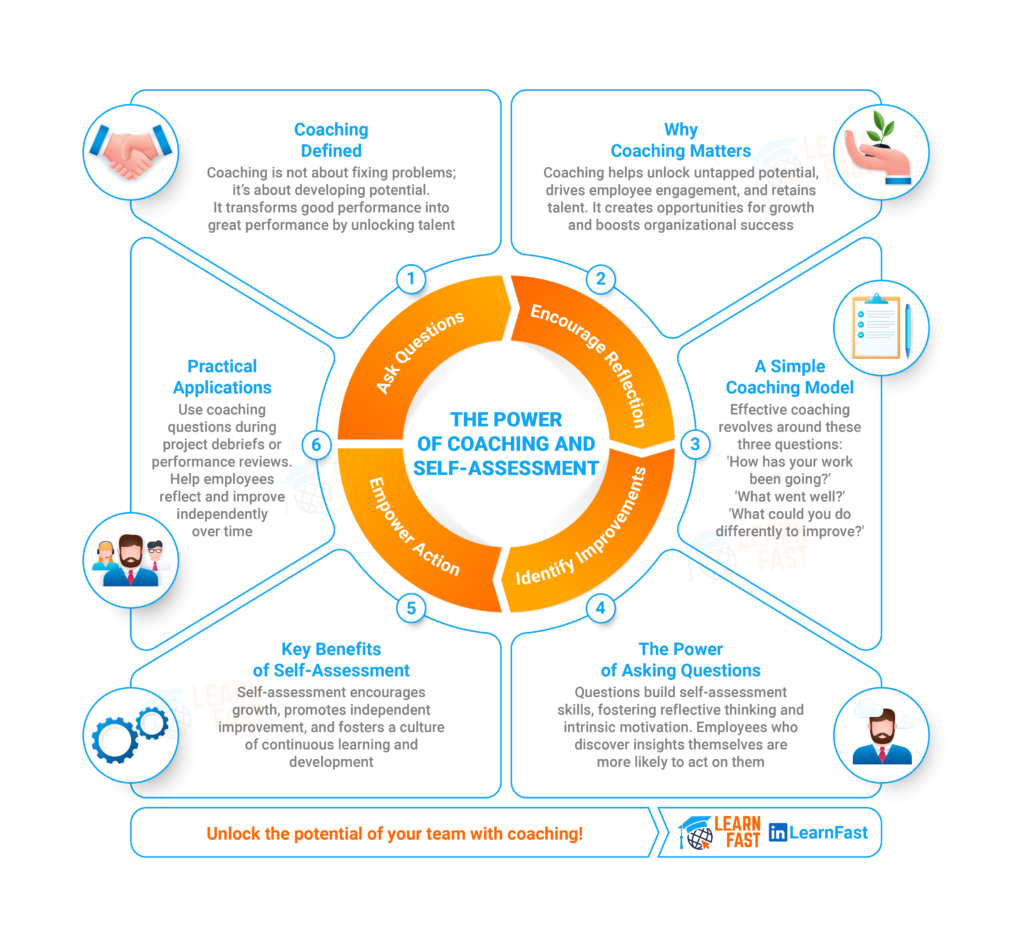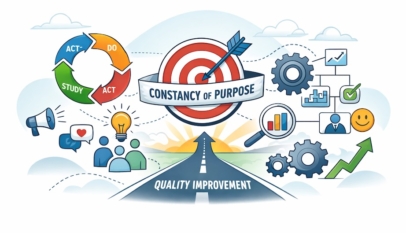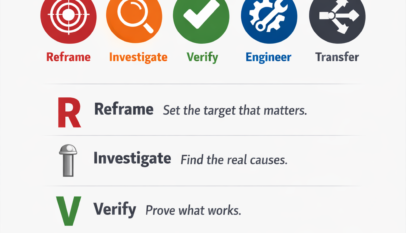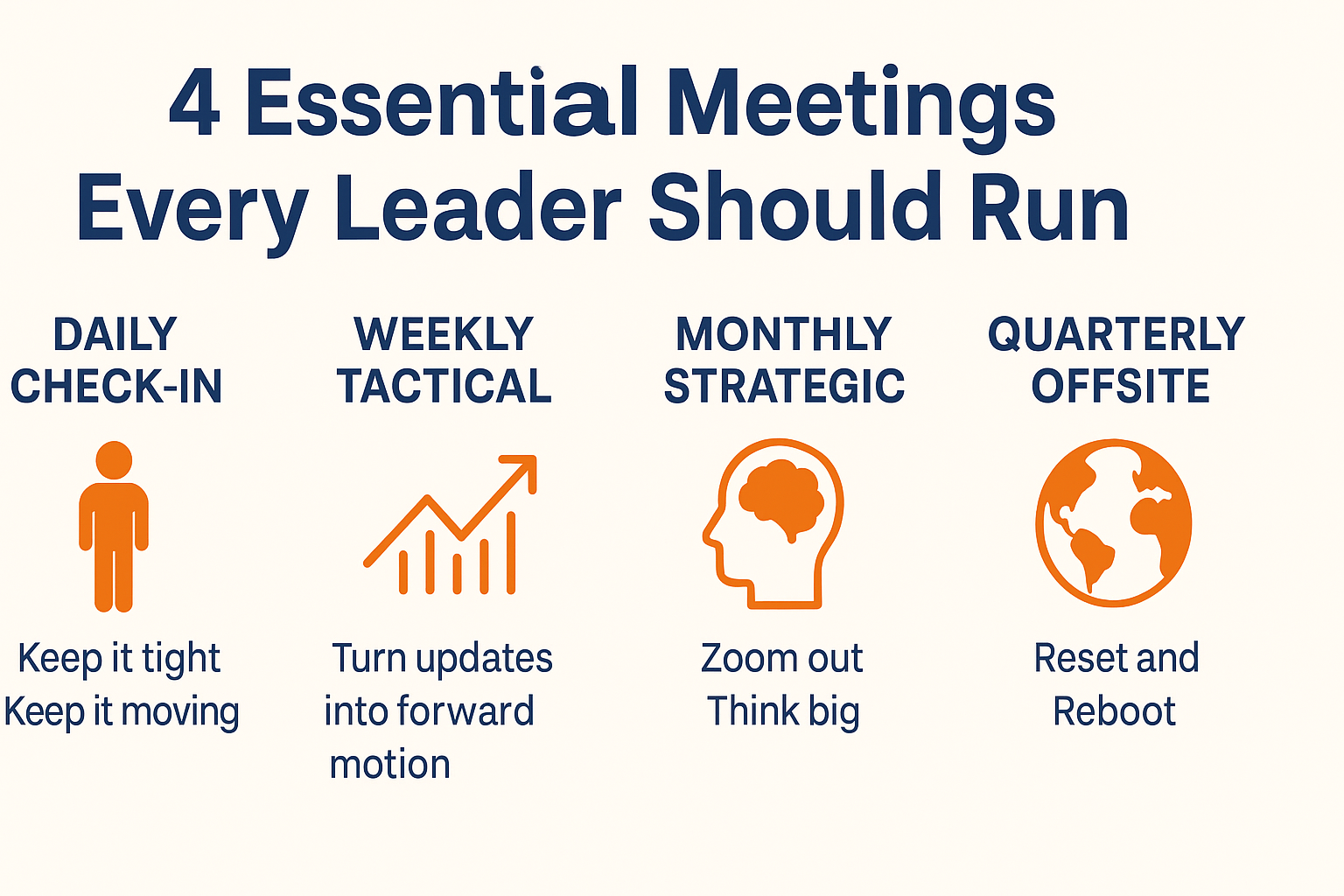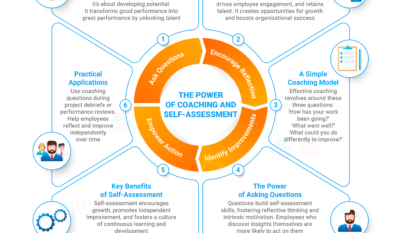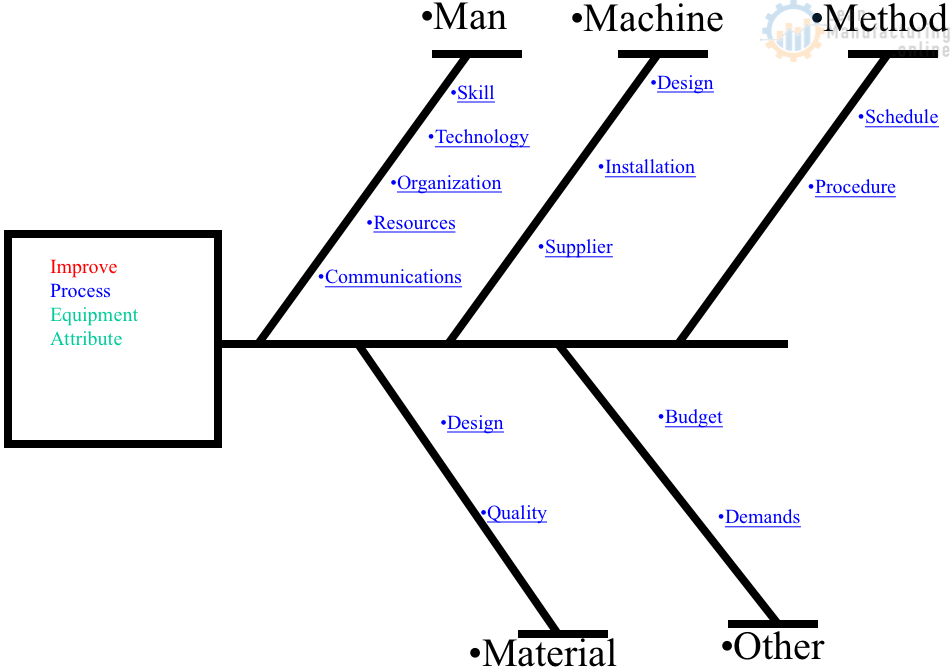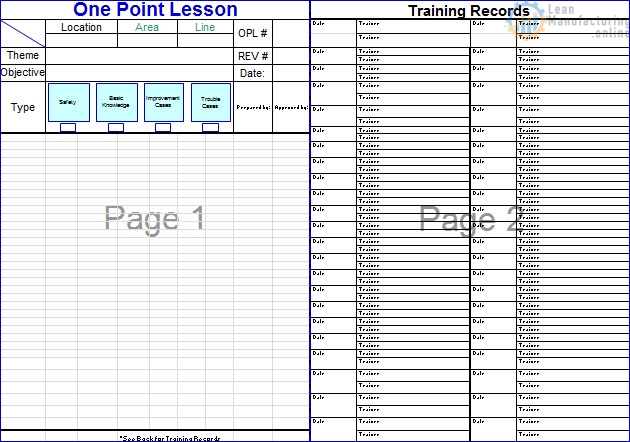Coaching has become a critical tool in leadership, not just for resolving issues but for unlocking potential within teams. A well-coached employee doesn’t just perform—they thrive. In this post, we delve into how coaching and self-assessment can transform good performance into extraordinary outcomes. If you’re a leader looking to build a culture of growth and accountability, this guide is for you.
Coaching: Beyond Problem-Solving
Effective coaching is about looking ahead, not just addressing the challenges of today. It’s a forward-thinking tool that allows leaders to help their teams grow, adapt, and excel. Instead of focusing on fixing performance problems, great leaders use coaching to empower their team members to self-reflect and self-improve.
Key Idea: Coaching is about development, not correction. Use it to elevate your team from good to great.
The Power of Reflective Questions
At the heart of coaching lies a simple yet impactful practice: asking the right questions. These questions don’t provide answers but instead guide employees to discover their own strengths and areas for growth.
Examples of Reflective Questions:
- What’s working well in your current role?
- What’s one thing you could improve?
- How would you approach this differently next time?
When employees engage in self-reflection, they are more likely to take ownership of their growth and make meaningful changes.
The Self-Assessment Advantage
Encouraging self-assessment is like handing your team a map—they can navigate their development journey with clarity and confidence. Self-assessment builds trust and empowers employees to evaluate their work objectively, leading to better results.
Why It Matters:
- Self-assessment fosters accountability.
- It drives independent learning and growth.
- It strengthens decision-making skills.
Leaders who promote self-assessment create a culture of self-driven improvement—a win-win for both teams and organizations.
Integrating Coaching into Leadership
Effective coaching doesn’t need to be time-consuming or complex. It can be seamlessly integrated into everyday leadership practices.
Practical Applications:
- After a project, ask your team what went well and what could have been done better.
- During performance reviews, focus on growth-oriented questions rather than simply reviewing outcomes.
- Use reflective coaching moments to recognize achievements and inspire next steps.
The key is consistency. Regular, meaningful coaching moments reinforce self-assessment’s importance and keep growth in mind.
From Questions to Results
Coaching isn’t just about asking questions—it’s about acting on the insights they reveal. A strong leader guides their team toward actionable steps, whether it’s improving a skill, adopting a new mindset, or setting a specific goal.
Example in Action:
Let’s say an employee struggles with prioritizing tasks. Through coaching, they identify this issue themselves. The leader can then suggest strategies, such as time-blocking or using productivity tools, helping the employee move from awareness to action.
Key Benefits of Coaching with Self-Assessment
When leaders combine coaching with self-assessment, the results are transformative:
- Teams are more engaged and motivated.
- Employees become proactive in solving challenges.
- Leadership relationships are strengthened through trust and collaboration.
By embedding self-assessment into coaching practices, leaders cultivate a culture where growth and excellence are the norms.
Final words
Leadership isn’t just about managing—it’s about inspiring growth. Integrating coaching and self-assessment into your leadership style can unlock your team’s potential and cultivate a workplace culture that thrives on continuous improvement.
Ready to take your leadership to the next level? Start by asking the right questions, encouraging self-assessment, and watching your team grow.
